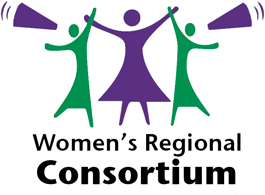Borrowing and debt is far from gender neutral. Women are more likely than men to claim social security benefits, more likely to be in low-paid, part-time and insecure work, more likely to be providing care for children/family members and more likely to have to make up for cuts to services through unpaid work. As women’s incomes are generally lower over their lifetimes this leaves them more vulnerable to short-term financial problems or income shocks making them more likely to have to rely on borrowing and debt to make ends meet.
There are clear links between poverty, credit and debt. Latest poverty figures in Northern Ireland show that the family type at the highest risk of poverty was single parents at 34% (and most single parents are women). UK research into poverty by the Joseph Rowntree Foundation found that poverty is rising slightly faster among older women than older men. Since 2013/14 when pensioner poverty started rising again, the rise has been from 14% to 20% for women. It also shows that among working age disabled women the poverty rate is double (36%) what it is among those who are not disabled and that informal carers (who are more likely to be women) are more likely to be in poverty (24%) than those without caring responsibilities (21%).
Women have lower financial wellbeing, have fewer retirement plans and smaller pension pots than men as well as being less likely to save regularly (56%) compared to men (63%). More women (52%) have never put their money into an investment product compared to 37% of men. Research by the Financial Conduct Authority shows that there are certain types of credit that women are more likely to own. These are mostly retail finance products such as store cards (18% of women compared with 10% of men), catalogue credit (18% compared with 7%) and high cost loans (13% compared with 8%). Looking at catalogue credit alone women are nearly three times as likely as men to own this type of credit.
Single parents are more likely to be impacted by poverty, financial hardship and debt. In Northern Ireland the majority of single parent households are headed by a woman (91%). Research by the Joseph Rowntree Foundation has found that single parents are by far the most likely of any family type to be struggling with poverty. Further research by the Joseph Rowntree Foundation shows that the risk of living in very deep poverty has increased by a third for people in lone-parent families, to reach 19% or 900,000 people. Debt advice agencies also report that single parents may be particularly vulnerable to debt as they are more likely to be in low-paid and part-time work as well as disproportionately impacted by welfare reform and increases in the cost of living.
Step Change reports that women who received debt advice in 2021 were more likely to be from single parent households (35%) and by comparison only 8% of men seeking advice were from single parent households. Low-income households are more likely to have to rely on high-cost credit as they are often unable to access cheaper forms of borrowing due to their low-income and/or other debts. This leaves these households vulnerable to exploitation and the likelihood of problem debt. Research conducted by Advice NI on behalf of the Consumer Council in Northern Ireland has highlighted that one of the themes around illegal lending is low income and lack of access to mainstream credit. Their research found that illegal lending is easily accessible, can escalate quickly leading to unmanageable debt and many clients are at the mercy of the illegal lender in terms of interest, charges and final amounts.
This article is an excerpt from our Women Living with Debt research.

